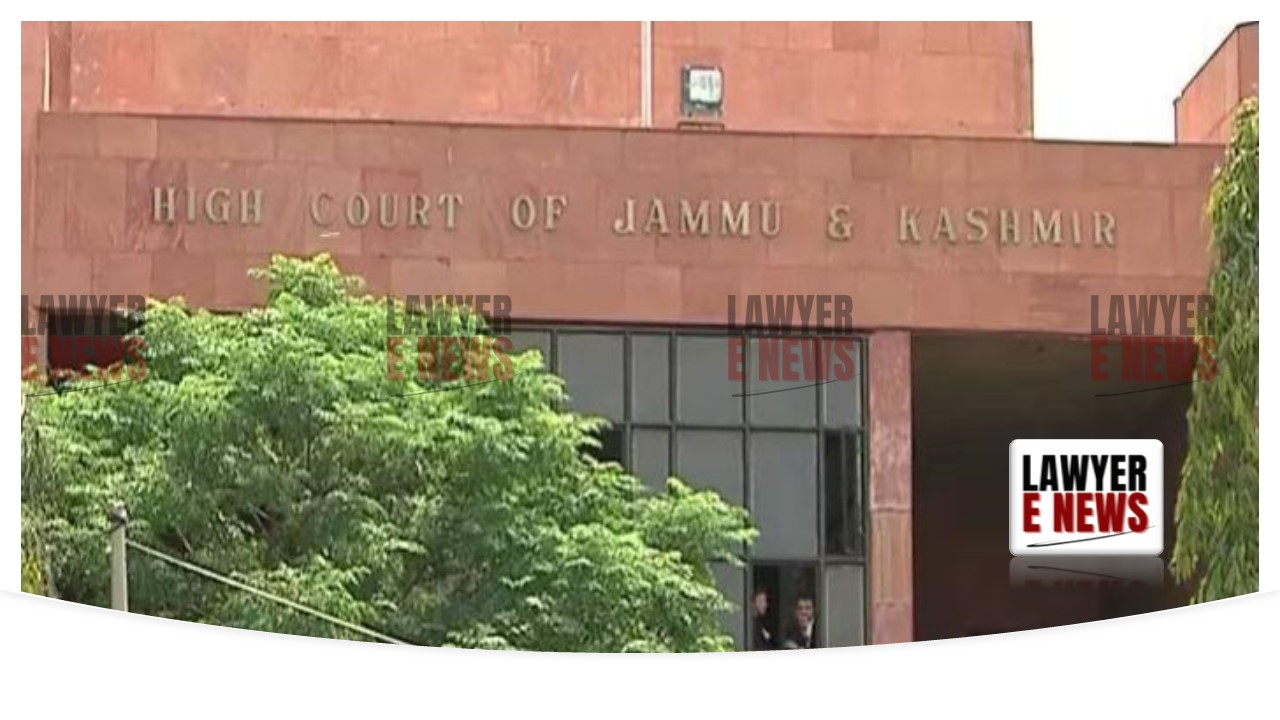-
by Admin
15 February 2026 5:01 PM



Jammu & Kashmir and Ladakh High Court appointing an arbitrator under Section 11(6) of the Arbitration and Conciliation Act, 1996. The Court allowed arbitration to proceed during the pendency of the contract, emphasizing that contractual provisions allow arbitration in exceptional circumstances. The decision was based on disputes arising from delays caused by significant design changes introduced by the Military Engineering Services (MES) Department, impacting the contractor’s ability to complete the work on schedule.
The petitioner, M/s Varindera Constructions Ltd., sought the appointment of an arbitrator to resolve disputes arising from a contract for constructing hangars at the Air Force Station Thoise, awarded in 2015 for Rs. 71 crore. The petitioner argued that project delays and financial losses resulted from design changes introduced by the respondents, which were outside the petitioner’s control.
The Union of India opposed the petition, claiming that disputes could not be referred to arbitration until the completion of the project under Clause 70 of the contract. However, the Court found the respondents’ argument unsustainable in light of Clause 28.1.4(c) of the MES Manual, which allows arbitration during the currency of a contract under exceptional circumstances.
The dispute arose from a contract awarded to M/s Varindera Constructions Ltd. for constructing three twin hangars at the Air Force Station Thoise, with a completion deadline of October 8, 2018. By the deadline, the petitioner had completed 70% of the work. However, the MES Department later introduced a new heating technology (Radiant Floor Heating) that required extensive design modifications to the flooring.
The MES Department took over two-and-a-half years to provide the new design, but ultimately decided to delete the work related to the heating system altogether. During this period, the respondents issued 11 extensions for project completion, acknowledging delays not attributable to the petitioner.
The petitioner invoked Clause 70 of the contract in March 2024, requesting arbitration to address financial losses from cost escalations and delays. When the respondents failed to respond, the petitioner filed this petition under Section 11(6) of the Arbitration and Conciliation Act, 1996.
The respondents argued that Clause 70 of the contract prohibited arbitration until project completion. However, the Court referred to Clause 28.1.4(c) of the MES Manual, which permits arbitration during the contract period if disputes affect the contractor’s ability to progress.
The Court held: "The contention of the respondents that arbitration cannot proceed until project completion is unsustainable. Clause 28.1.4(c) allows arbitration during the contract period in exceptional cases where disputes impact work progress."
The Court examined the timeline and found that delays were caused by design changes introduced by the respondents. The petitioner’s inability to complete the work on time was not attributable to its own actions. The issuance of 11 extensions by the respondents without objection further demonstrated their responsibility for the delays.
"The delays cannot be attributed to the petitioner, as the MES Department's design changes and inaction significantly affected the contract’s progress."
The petitioner assured the Court that it would not seek a second arbitration after project completion. This assurance addressed concerns about multiple proceedings over the same disputes.
"The petitioner has undertaken not to opt for a second arbitration post-contract completion, thereby avoiding multiplicity of proceedings."
The Court allowed the petition and appointed Mr. Arvind Kumar Arora, Director General (Personnel), MES Department, as the sole arbitrator to adjudicate the disputes. The arbitrator was directed to issue notices to the parties and resolve the matter in accordance with the law. The arbitrator’s fees were to be borne equally by both parties.
The Court emphasized that this arbitration would comprehensively address disputes, preventing future arbitral claims after the project’s completion.
This ruling highlights the judiciary’s proactive approach to ensuring timely resolution of disputes in infrastructure contracts, particularly when delays are caused by the government or its agencies. The Court’s reliance on Clause 28.1.4(c) of the MES Manual underscores the importance of addressing disputes during the contract period to avoid escalation and further losses.
Date of Judgment: December 11, 2024
